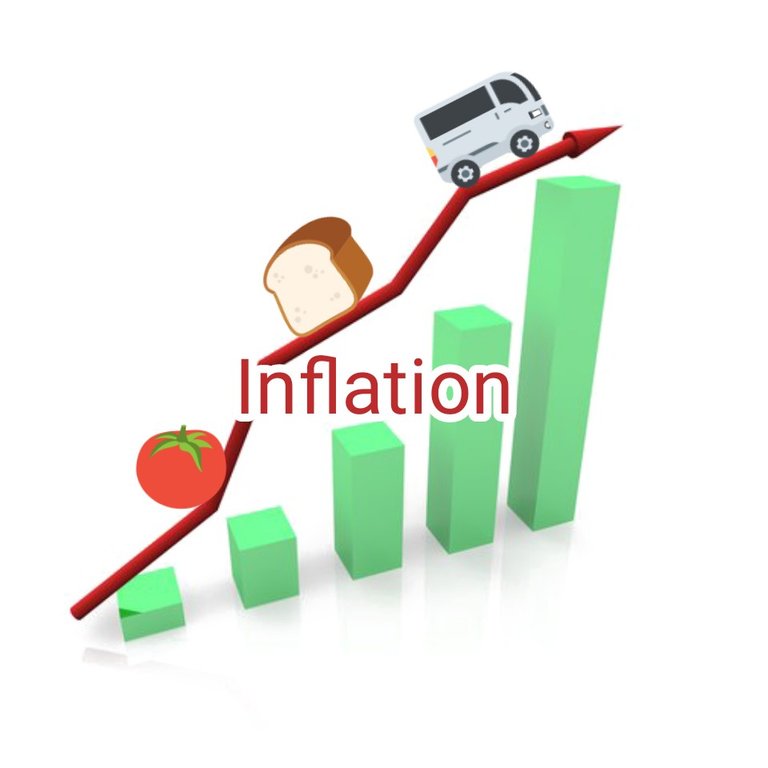
Ever wondered why the prices of goods and services seem to go up exponentially? Prices of things were higher today than they were 10years ago in majority of countries, and they keep going up. So what exactly can we pinpoint as the real cause of continues price increase? Can we ever reverse this trend and start seeing a continues decrease in prices, if yes, how?
First of all, let's understand exactly why things keep going up instead of down. I think if we are able to know the cause, it becomes easy to solve or prevent it. Before we start, it's important to note these two main factors that are responsible for lots of the inflation (or price increase) we are used to :
1 Scarcity or inadequate supply of products and services (or goods and services)
2 Increase in prices of base/primary products that are means to production, selling or distribution of other goods and services.
There is an interesting theory that has been put forward as the main cause of price increase that's based on number 1(scarcity or inadequate supply of goods and services), the theory is money printing. Does printing money really cause that? Well, just printing money does not cause prices of goods and services to go up, but the printing of undeserved money that is used to buy up available products to the extent that the products become scarce/inadequate. In summary, price increase would occur when demand for goods and services are greater than their supply. Here is an example of where and when prices start shooting up: a buyer goes to a producer to get a product and he notices that the product has become scarce and the producer is unwilling to sell the few remaining ones, however, the buyer seems to be more desperately in need of the product and is willing to add more money to the actual cost to be able to persuade the producer to sell it. The producer considers the offer, thinks it's fair, partly because it will enable him produce more, and he agrees to sell it. Do you understand what just happened? It's simply an example of how things of high demand can increase in price when they become scarce, and people also try to go into their conservation unwilling to sell them to others in order to meet their own needs, but someone who is more desperately in need of the scarce product would be willing to pay higher price to get the owner exchange it. If the higher price is accepted it becomes the new market price which may consequently slow down the demand for the product since there will be lesser number of people that can afford to pay the higher price. This continues until the supply of the product increases again outpacing its demand, and price is lowered. But if supply increases while demand continues to increase in the future, probably due to population growth, price would continue to increase, that is exactly where we are today — nations are not producing enough to meet increasing demand.
Another thing to note is that scarcity or inadequate supply of one or more parts that make up a whole product can also affect the overall price of the product, likewise parts of the services for the product development and distribution.
In regards to number two, there are cases where goods and services keep increasing in price despite being abundant in supply and available for sale. This could confuse people who based the cause of inflation on "demand greater than supply" without realizing the impact scarcity of primary products like energy, food can have on other products whether abundant or scarce. The impact would be greater if more people, producers and sellers are dependent on the products. If price of the primary product increases, people could begin to increase the prices of their own goods and services to able to continue to buy and use the primary products.
Can we ever experience continuous price decrease?
I don't think it will be that easy unless supply of goods and services is steadily greater than demand. And it would be great if we achieve this without compromising on good quality and product quantity.
To reduce, stop or prevent inflation, it's important to ensure that primary products (and other products) are easily produced and their raw materials are abundant in supply especially locally, since their scarcity or inadequate supply can result in inflation of other products that depend on them.
Consider first to use abundant easy-to-produce local raw materials, foods, etc for production before considering the foreign.
Another way to stop or prevent inflation is to encourage productivity to help make the production or supply of goods and services greater than their demands.
Talents need to be developed and used in production of required products that are lacking or inadequate.
Enough funds should be made available to the productive sector for those who are doing well in production to help expand their businesses.
Enough funds should also be made available to talents who can successfully run businesses.
How inflation weakens or devalues a national currency.
A nation's currency could loses value against another if the currency is lesser in demand and more in supply. But a nation that produces & sells more than it buys and consumes would have stronger currency than a nation that does the opposite.